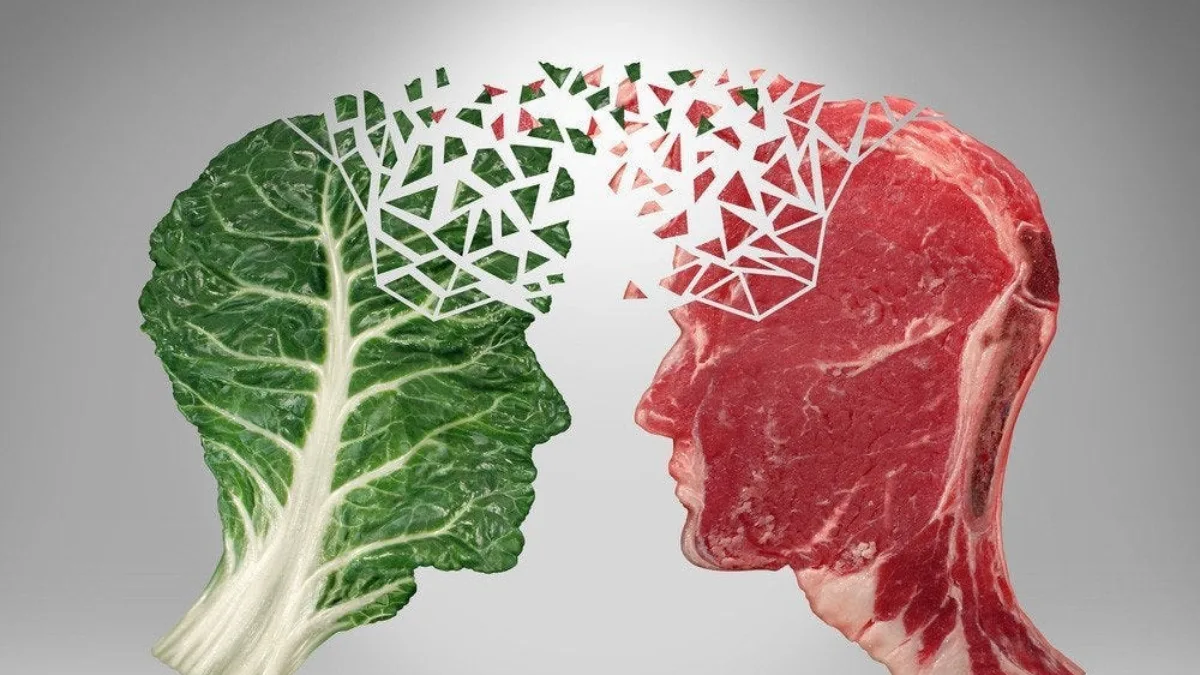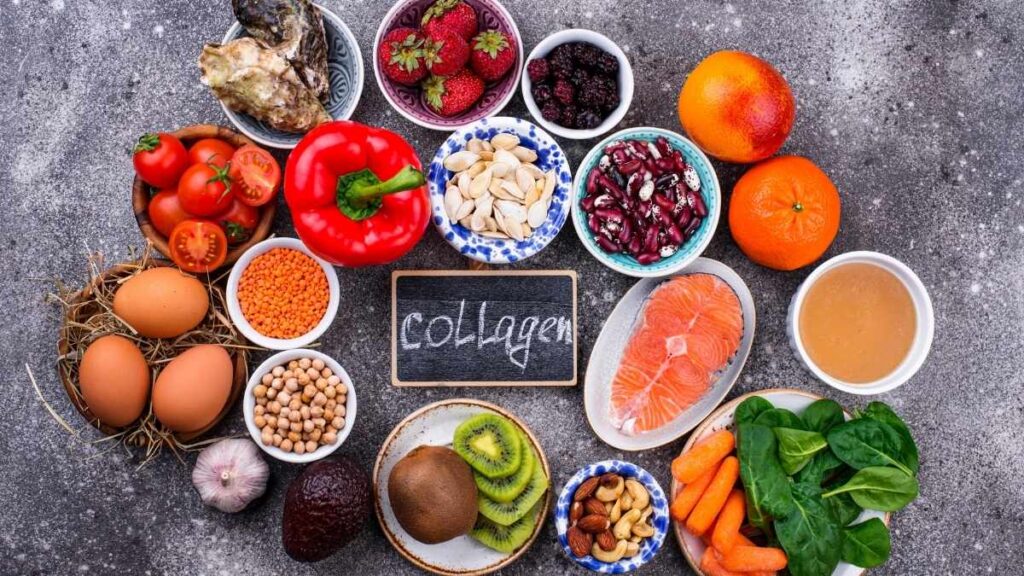Meat Eaters vs. Vegetarians: The Shocking Secret Behind Who’s Healthier (Spoiler: It’s Not What You Think!)

You’ve probably heard it all—meat causes heart disease, or vegetarians lack key nutrients. But with all the conflicting health advice, who’s really coming out on top?
The battle between meat lovers and plant-based eaters has never been louder. Social media’s flooded with debates, “experts” push biased agendas, and your health? It’s caught in the crossfire. You try to make the right choices, but the deeper you dig, the more confusing it gets. Could everything we’ve been told be misleading?
Groundbreaking new research just flipped the script—and the results are nothing like what you’d expect. Whether you’re a steak enthusiast or a tofu fan, this might change how you eat forever. Let’s break through the noise and reveal the shocking truth about who’s really healthier… and why the answer isn’t as black-and-white as you think.
High Iron & Zinc
WEAKNESS: Saturated Fat & Cholesterol
Lower Heart Disease Risk
WEAKNESS: B12 & Omega-3 Deficiencies
1. The “Longevity Paradox”: Why Some Meat Eaters Outlive Vegetarians
Most assume vegetarians live longer, but research reveals a twist. Some meat eaters actually have greater longevity—thanks to lifestyle, not just diet. Those who consume quality meats while avoiding processed foods, exercising, and managing stress often outperform unhealthy vegetarians.
Genetics, social connections, and moderate alcohol intake also play roles. It’s not about meat vs. plants; it’s about balance and habits. A steak with veggies beats a vegan burger with fries any day.
2. The Hidden Nutrient Deficiency Vegetarians Rarely Talk About
Plant-based diets can lack choline, a nutrient vital for brain health. Eggs and liver are top sources, but many vegetarians don’t replace them adequately. Low choline links to memory issues and fatigue.

While soy and nuts contain some, they’re not as efficient. Without careful planning, even healthy vegetarians may fall short. Brain fog? It might not be stress—it could be your diet.
3. The Meat-Eater’s Gut Microbiome Secret
Surprisingly, some meat lovers have richer gut bacteria than vegetarians. Fermented meats, like quality salami, and collagen-rich broths feed beneficial microbes. Meanwhile, processed vegan foods can harm gut diversity.

Fiber is crucial, but so are certain animal-based compounds. Balance matters—exclusive plant diets sometimes miss key microbial fuel. Your gut doesn’t care about labels; it thrives on variety.
4. The Protein Myth: Why Plant-Based Diets Aren’t Always “Cleaner”
Not all plant proteins are equal. Soy isolates and seitan often come loaded with additives and anti-nutrients. Some mock meats are ultra-processed, packed with emulsifiers and sodium.

Grass-fed beef or wild fish might be cleaner choices. Protein quality matters—just because it’s plant-based doesn’t mean it’s better. Whole foods win, whether from animals or plants.
5. The Evolutionary Twist: Did Humans Thrive Because of Meat or Despite It?
Early humans didn’t just eat meat—they relied on it. Our brains grew larger thanks to nutrient-dense animal foods. But new studies suggest some ancient tribes thrived on mostly plants.
The key? Adaptation. Humans survived on whatever was available. Meat provided efficiency, but resilience came from flexibility. Maybe our ancestors were the original flexitarians.
6. The Shocking Link Between Vegetarianism and Mental Health
Research shows vegetarians report higher depression rates. Why? Potential deficiencies in B12, iron, and omega-3s—all critical for mood. Also, restrictive diets can increase anxiety.

Meat contains compounds like creatine and carnosine that support brain function. This doesn’t mean plants are bad, but balance is crucial. Mental health isn’t just about what you avoid—it’s what you include.
7. The “Flexitarian” Advantage: Why the Middle Ground Wins
Nutrition science keeps pointing to one truth: extremism rarely works. People who eat mostly plants but occasionally enjoy high-quality meat often show better health markers than strict vegans or heavy carnivores.

This approach provides nutrient diversity without deprivation. Think Mediterranean diet—olive oil, fish, veggies, and the occasional steak. Rigid diets create stress; flexibility leads to sustainability. The healthiest eaters don’t follow rules—they follow balance.
8. The Ethical Dilemma Nobody Discusses: Is Vegan Agriculture Really Cruelty-Free?
Veganism aims to reduce harm, but industrial farming has hidden costs. Monocropping soy and palm oil destroys ecosystems, displacing wildlife. Pesticides kill insects, and deforestation wipes out habitats.

Ethical eating isn’t just about avoiding meat—it’s about sourcing. A small farm’s pasture-raised beef might cause less suffering than mass-produced quinoa shipped across the world. True ethics require looking beyond labels.
9. The Hormonal Impact: How Meat vs. Plants Affects Testosterone & Estrogen
Men on vegan diets sometimes see lower testosterone, while meat-heavy diets may boost it—but too much can backfire. For women, soy’s phytoestrogens can help or disrupt hormones, depending on the person.

Animal fats support hormone production, but processed meats skew the balance. There’s no one-size-fits-all answer. Your plate shapes your endocrine system more than you think.
10. The “Blue Zone” Deception: Are Meat Eaters Being Misled About Longevity?
Blue Zones—where people live longest—are often cited to promote plant-based diets. But Okinawans eat pork, Sardinians enjoy lamb, and Ikarians consume goat milk.

The secret? They eat meat sparingly, as a side dish, not a main course. It’s not about exclusion but moderation. The longest-living populations don’t avoid meat—they respect it.
11. The Ultimate Irony: Why Some Vegetarians Eat More “Junk” Than Meat Lovers
Vegan cookies, fake meats, and dairy-free ice cream flood the market. Many vegetarians end up consuming more processed junk than meat-eaters who stick to whole foods.

Just because it’s plant-based doesn’t mean it’s healthy. Oreos are vegan. Sugar is vegan. Health isn’t about the label—it’s about what’s actually in your food. A salad with chicken beats vegan nachos any day.
🗿 Ancient Health Truths
Final Thoughts:
Turns out, the healthiest people aren’t defined by meat or plants—but by how they eat. Obsessing over labels misses the point: processed junk sabotages both sides. Longevity favors those who prioritize real food, balance, and flexibility.
Your body thrives on nutrients, not ideologies. The shocking truth? Extremism fails more often than moderation. Health isn’t a tribe—it’s a strategy.






